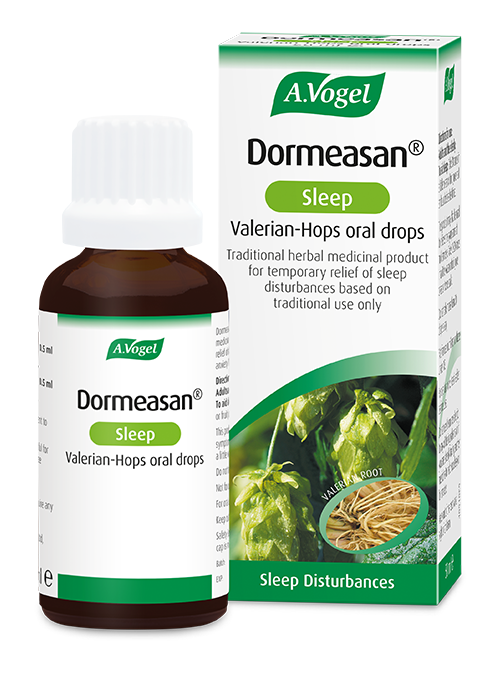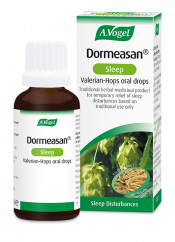Do you wake up feeling as though you haven’t had a wink of sleep?
There’s nothing more frustrating than waking up feeling as though you haven’t had a wink of sleep all night, despite being told you were snoring your head off at 2am. Yes, your body may have been asleep, but you couldn’t feel any further from refreshed or rejuvenated, and worse still, in this situation, it can be difficult to garner any sympathy from your partners or spouses.
However, it seems that science has an answer for this phenomenon and, simply put, it seems that even while your brain is sleepy, you may be consciously awake.
According to a study conducted by Professor Kay that was published in the journal Sleep, it’s thought that insomniacs may suffer from an impaired inhibition process.1 Simply put, when you’re falling asleep, your brain will release a wave of inhibitory neurons which will steadily make you feel less and less aware until you’ve entered deep sleep.
The study, which looked at the sleep patterns of both insomniacs and normal sleepers, found that, despite contrary readings from the polysomnography, insomniacs still reported that they felt as though they’d been awake all night and had increased activity in the areas of your brain connected to conscious awareness, particularly during NREM sleep.
Participants that didn’t have insomnia also had increased activity in the same areas but they reported that they were fast asleep, even before the polysomnography indicated so. This would seem to suggest that, to some degree, the inhibitory process is being hindered in insomniacs, meaning that they feel more consciously awake even when their brain is fast asleep.
What can disrupt the inhibitory process?
- Stress and anxiety: Unsurprisingly, one of the main issues that can affect your cognitive, and therefore your inhibitory processes, is an emotional disturbance such as stress or anxiety. This is because, when you’re lying awake at night worrying about various commitments or entertaining an existential crisis, your production of stress hormones such as cortisol, will increase. This then inhibits your production of melatonin, the sleep hormone, and places your nervous system on red alert. This is because your body cannot distinguish between superficial stress and a life-or-death scenario. If you’re about to fight for your survival, releasing a wave of inhibitory neurons to make you less conscious and aware will be pretty low on your body’s to-do list

- Medication: Just started a new course of medication and finding it difficult to get to sleep? Some medications, such as antidepressants, steroids and blood pressure medicines, can affect your sleep patterns and the inhibitory process. Even painkillers such as Anacin contain caffeine which can have a detrimental impact on your sleep pattern. So, it’s always worth discussing them with your doctor first if you are experiencing any sleep difficulties – it could be a simple case of changing your medication or alternating which time you take it at
- It’s too hot (or too cold!): The environment that you sleep in can have a big impact on your quality of sleep. If you’re tossing and turning because it’s too warm, it’s going to affect how you fall asleep. That’s why sleep experts generally recommend a cooler sleeping environment. As you fall asleep your core body temperature gradually drops and it’s believed a cool sleep environment can help to speed up this process, making you feel drowsier2
- Too much sugar: If you’ve read my blog, ‘Is sugar preventing you from having sweet dreams?’ you’ll already be aware of how refined sugar can impact your sleep pattern, firstly by raising your blood sugar levels, which can cause a temporary spike in energy, and then by the subsequent crash which can rouse you from deep sleep into REM sleep. If you’re lying in bed experiencing a sugar rush, it’s likely you’ll feel wide awake and find it difficult to nod off
- You’re too exhausted: Ironically, exhaustion can actually hinder the inhibitory process that supports your sleep patterns. It’s important to emphasis the type of exhaustion – fatigue and tiredness, despite often being referred to interchangeably, are not the same thing. Fatigue can be a mental and emotional experience, relating to stress, anxiety, low mood, dehydration or even a nutritional deficiency. Even if you feel tired in your body, your mind will still be going through the stages of a stress response, making relaxation difficult and sleep even more unattainable
- You’re glued to your devices: Yes, this is definitely a point that I often bring up in my blogs but, since so much of our lives revolve around our smartphones and other devices, it never hurts to give this issue a bit of attention. If you’re finding it difficult to drift off and are passing the time by googling random facts on your tablet or checking up on social media on your phone, your sleep patterns won’t thank you. This is because the blue light emitted from such devices can inhibit your production of melatonin, not to mention dramatic or action-packed films and television programmes can trigger your stress response, making you feel more awake and alert - not exactly helping your case!
Is there anything you can do?
In his research, Professor Kay does mention one method in particular that can help to enhance your inhibitory process and it’s a coping method that’s I’ve already mentioned in detail – mindfulness meditation! He states that, “it may help patients inhibit cognitive processes that are preventing them from experiencing sleep,” perhaps hinting at the beneficial effects mindfulness can have over emotional imbalances such as stress and anxiety.

As I explore in my blog, ‘Is mindfulness the key to a good night’s sleep?’ being more mindful can help you to be more aware and objective when it comes to any negative emotions you may be experiencing. This heightened awareness, combined with deep breathing techniques, can encourage you to be more at peace with your thoughts, allowing you to think about them objectively and to relax. Studies have even found that mindfulness can help to lower your blood cortisol levels!3
Mindfulness isn’t the only way you can go about tackling stress and anxiety, if they are factors that could be affecting your sleep pattern. I talk about more about how to cope with emotional upsets like low mood and stress over at A.Vogel Talks Mental Wellbeing, but the main blogs I would recommend are:
My top tips to combat mood swings
Breathing tips to relieve stress
How does stress affect our nervous system
What about your sleep hygiene routine?
Your sleep hygiene can play a big role in determining your sleep quality, so it’s important to maintain a regular and consistent sleep routine. You can read more about my top sleep hygiene tips here, but below I’ve just mentioned a few of my top suggestions!
- Go to bed at the same time each night: During the working week the chances are that most of you will maintain a regular bedtime or at least be forced to get up at the same time each day. However, when the weekend arrives this consistent routine will go out the window – you’ll stay up later and then lie in longer to compensate for any sleep debt you’ve amounted during the week. However, these irregular sleep patterns won’t be doing you any favours, as I mention in my blog, ‘Are your weekend lie-ins really helping you catch up on sleep?’ Instead, try to keep things consistent, even at the weekends aim to be up within an hour of your usual wake time
- Keep your devices away from your bed: This is arguably the biggest challenge of all – resisting the urge to browse on your phone while you’re trying to nod off! However, as I’ve discussed, your smartphone, tablet, laptop and other electronic devices are not your friend when it comes to your sleep quality, so do attempt to keep your contact with them at a minimum in the hour leading up to your usual bedtime
- Don’t toss and turn: If you’re tossing and turning and sleep still isn’t coming, get up. It’s easy to become so fixated on getting to sleep that it becomes a pressure bearing down on you and the last thing you need is to start associating your bed with stress. Get up and move into a darkened room for a few minutes and practice some breathing techniques – it may help you to calm down. Return your bed when you start to feel yourself becoming drowsy
- Don’t turn the heating up too much: If your bedroom is too warm it can affect your sleep patterns so try to make sure your room temperature is slightly cool. If your neighbourhood isn’t too loud you could even leave a window open to let some fresh air in!
You could try valerian
Traditional sleep medicines can sometimes contribute to problems such as grogginess or disrupt your balance of NREM and REM sleep, which is why so many are turning to natural alternatives like Valerian. Studies have found that a combination of valerian and hops can help to promote relaxation by increasing your levels of GABA, an inhibitory neurotransmitter which can help to calm your nervous system, making it easier for you to fall asleep.
Our sleep remedy Dormeasan contains organically cultivated extracts of Valerian and Hops, which makes it ideal for those that find it difficult to wind down or fall asleep. It also has the advantage of being a non-drowsy remedy, meaning that you won’t wake up feeling groggy or disorientated the following day. Simply take 30 drops in a couple of tablespoons of water around 30 minutes before you go to bed for the best results.
A.Vogel Dormeasan Sleep Valerian-Hops Oral Drops | Sleeping Aid | Extracts of Fresh Valerian Root
£5.49 (15ml) In Stock Get it tomorrow, 4th July.
1https://www.medicalnewstoday.com/articles/321388.php
2https://sleepjunkies.com/health/science-sleeping-cool-room/









